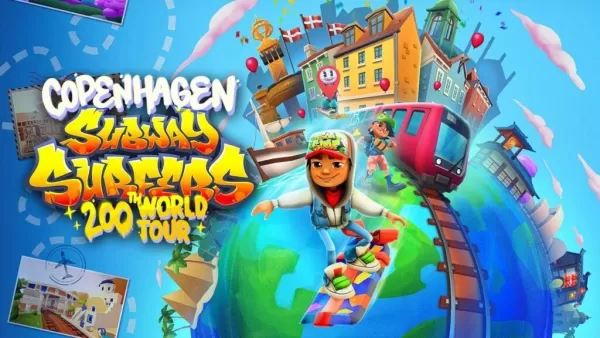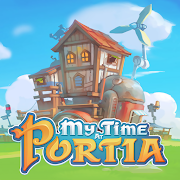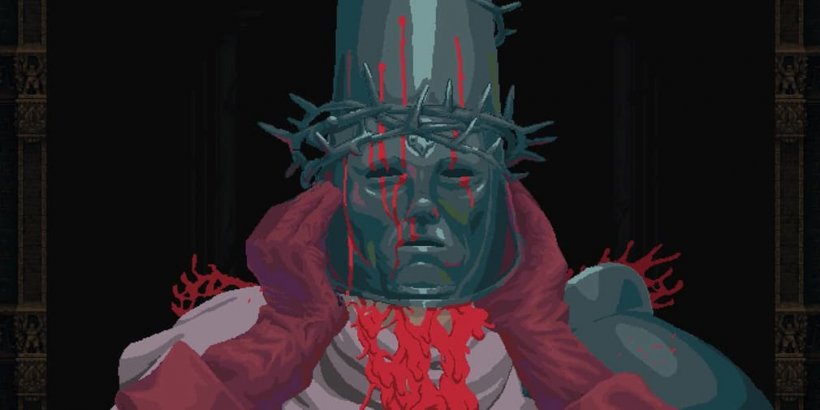"New Oblivion: Remake Look, Remaster Feel"
When Bethesda unveiled the long-awaited Oblivion Remastered earlier this week, I was astounded. The 2006 journey through Tamriel, once notorious for its quirky, potato-faced characters and blurred, low-resolution landscapes, has been transformed into the most visually stunning Elder Scrolls game to date. Having grown accustomed to lackluster remasters like the Mass Effect Legendary Edition and Dark Souls Remastered, which hardly differed from their Xbox 360 counterparts, I was skeptical. Yet, seeing the Imperial City I explored nearly two decades ago rendered in Unreal Engine 5 with ray tracing was breathtaking. Beyond the visuals, the game boasts enhancements in combat, RPG systems, and numerous other details. Initially, I questioned if Bethesda and Virtuos had misnamed it—surely this was an Oblivion *Remake*, not just a remaster?
It turns out I wasn't alone in my thoughts. Many fans labeled it a remake, and even Bruce Nesmith, the senior game designer of the original Oblivion, remarked, "I'm not sure [the word] remaster actually does it justice." However, after spending several hours with the game, it became clear that while Oblivion Remastered may visually resemble a remake, it fundamentally plays like a remaster.
The reason Oblivion looks like a remake is due to the extensive work by Virtuos, with "every single asset redesigned from scratch." Visually, everything on screen is brand new—from trees and swords to crumbling castles. This overhaul meets modern graphical expectations with beautifully textured environments, stunning lighting, and a new physics system that makes every arrow and weapon strike feel realistic. While the characters you meet are the same as those from 2006, every NPC model is a new creation. This impressive visual transformation aims not to replicate nostalgic memories but to meet 2025 standards. If I had seen it before the remaster rumors, I might have mistaken it for The Elder Scrolls 6.
The enhancements go beyond visuals. Combat has been significantly improved, making swinging a longsword feel more satisfying than ever. The third-person camera now includes a functional reticule, and all menus, from the quest journal to dialogue and minigames, have been refreshed. The original levelling system, often criticized, has been replaced with a more logical hybrid of Oblivion and Skyrim's approaches. And yes, you can finally sprint. With such substantial visual and gameplay upgrades, one might argue we're in remake territory.
However, the debate over whether Oblivion Remastered is a remake or a remaster hinges on semantics. There are no industry-standard definitions for these terms, and publishers often use them interchangeably. For example, Rockstar's "Definitive Edition" remasters of the Grand Theft Auto trilogy still show their PlayStation 2 origins, despite upscaled textures and modern lighting. Conversely, the Crash Bandicoot N. Sane Trilogy, labeled a remaster, features all-new graphical assets and looks like a modern game. Remakes like Bluepoint's Shadow of the Colossus and Demon's Souls rebuild games from the ground up but remain faithful to the originals. Meanwhile, Resident Evil 2 sticks to the original structure but completely reimagines the gameplay, and Final Fantasy 7 Remake and Rebirth radically alter the design, script, and story. These examples, all considered remakes, highlight the lack of a unified philosophy.
Traditionally, rebuilding a game in a modern engine was considered a remake, while remasters were limited upgrades within the original technology. Yet, this distinction is becoming outdated. A more fitting definition today might be that a remaster is a graphical overhaul that preserves the original game's design with some quality-of-life improvements, while a remake redesigns a game entirely. This would reclassify Demon's Souls and the upcoming Metal Gear Solid: Delta as remasters, reserving the term "remake" for games that truly reinvent their predecessors.
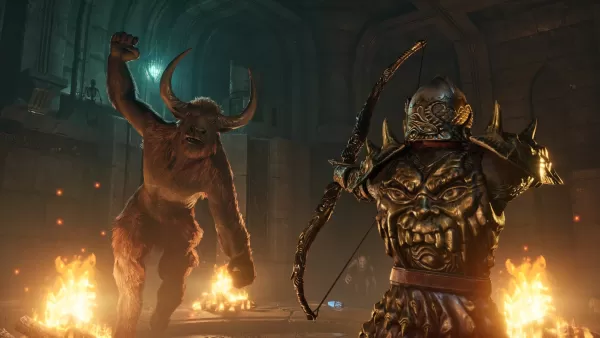
New lighting, fur, and metallic effects are just the beginning of the changes in Oblivion Remastered. Image credit: Bethesda / Virtuos. Under these proposed definitions, Oblivion Remastered is aptly named. While its new assets and Unreal Engine 5 ray tracing make it look brand new, the core gameplay and mechanics remain rooted in the 2000s. As Bethesda explained, "We looked at every part and carefully upgraded it. But most of all, we never wanted to change the core. It’s still a game from a previous era and should feel like one."
The hallmarks of that era are evident throughout. Loading screens still hide behind every door, the persuasion minigame remains perplexing despite its updated interface, and the city designs resemble simple stage sets. NPCs move awkwardly and converse with the stiffness of early AI. Even with a significant combat upgrade, it still feels somewhat detached. And the game retains its share of bugs and glitches, preserving the original's quirky charm.
Just a couple of months ago, Obsidian’s Avowed showcased a modern take on some of The Elder Scrolls’ core elements. Its dynamic combat and rewarding exploration make Oblivion Remastered's mechanics feel dated. Yet, this remastered classic still has much to offer in 2025. The magic of its world remains vibrant, with its vast, Rohan-like fields full of mysteries and oddities. Its ambitious features, like dynamic goblin wars and a satisfying quest structure, continue to shine. The game's old-school approach to player freedom feels refreshing in an era where modern games often guide players too closely. However, the granular details of Oblivion are clearly dated. The dialogue lacks finesse, and the interconnected systems lack elegance. The level design, whether in caves, castles, or the cursed lands of Oblivion, feels ancient. A true remake would update these elements, but this project is about reliving the past. Thus, it remains Oblivion *Remastered*.
Video games often borrow terminology from other media. In film, remakes are entirely new productions with new casts, crews, and scripts, while remasters enhance existing films to meet modern standards. The 4K restorations of Jaws and The Godfather are prime examples—they look incredible but remain products of the 1970s, evident in their direction, delivery, and effects. Oblivion Remastered is similar to these film restorations. It pushes visual quality to its limits, recreating the game's "exterior" in a new engine, but underneath, it's still a product of the 2000s. As Alex Murphy, executive producer at Virtuos, aptly put it during the reveal stream, "We think of the Oblivion game engine as the brain and Unreal 5 as the body. The brain drives all the world logic and gameplay and the body brings to life the experience that players have loved for almost 20 years."
Oblivion Remastered is precisely what it claims to be, and its achievements should not be underestimated. Rather than demanding it be labeled a remake, we should use it as the benchmark for remasters from other major AAA companies. This is the standard that Mass Effect Legendary Edition should have reached, not just a cleaned-up re-release. This is what Grand Theft Auto: The Trilogy should have been, not a cynical cash grab. There's nothing cynical about Oblivion Remastered. It looks like a remake crafted with passion but plays like a remaster preserved with love, and that's exactly how it should be.
-
Clash Royale players are finally getting what they've been waiting for - the Inferno Dragon Evolution arrives nearly a decade after the fiery terror first appeared in-game. To celebrate this long-anticipated upgrade, Supercell partnered with FinnishAuthor : George Sep 14,2025
-
Subway Surfers celebrates its 13th anniversary this month with a thrilling global adventure for players worldwide. Embark on a city-hopping journey starting May 12th.Returning to Its Roots in CopenhagAuthor : Alexis Sep 11,2025
-
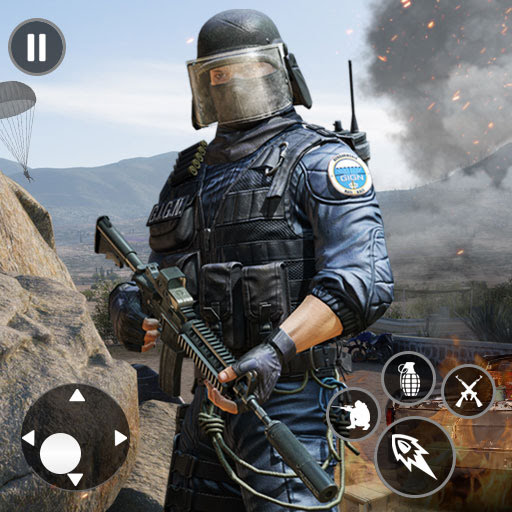 Gun Shooting Games Fps OfflineDownload
Gun Shooting Games Fps OfflineDownload -
 Fruits Mania:Belle's AdventureDownload
Fruits Mania:Belle's AdventureDownload -
 Real Guitar: lessons & chordsDownload
Real Guitar: lessons & chordsDownload -
 Rolling Ball Impossible roadDownload
Rolling Ball Impossible roadDownload -
 Shoot n CrushDownload
Shoot n CrushDownload -
 Rise Up: Fun Strategy GameDownload
Rise Up: Fun Strategy GameDownload -
 BigWin Slots - Caça níqueisDownload
BigWin Slots - Caça níqueisDownload -
 CricgenixDownload
CricgenixDownload -
 Cờ tướng và cờ thếDownload
Cờ tướng và cờ thếDownload -
 Shuffle DoubleDownload
Shuffle DoubleDownload
- Steampunk RPG Eldgear Unveiled by KEMCO
- NYT Hints and Answers: Guide to January 10, 2025
- Discover the Artifacts in Stalker 2: Locations and Acquisition
- STALKER 2: Heart of Chornobyl - All Endings (& How to Get Them)
- Mushroom Go! Unleashes Co-op Dungeon Adventure for Fungi Fans
- Metaphor: ReFantazio - Complete Bond Guide


